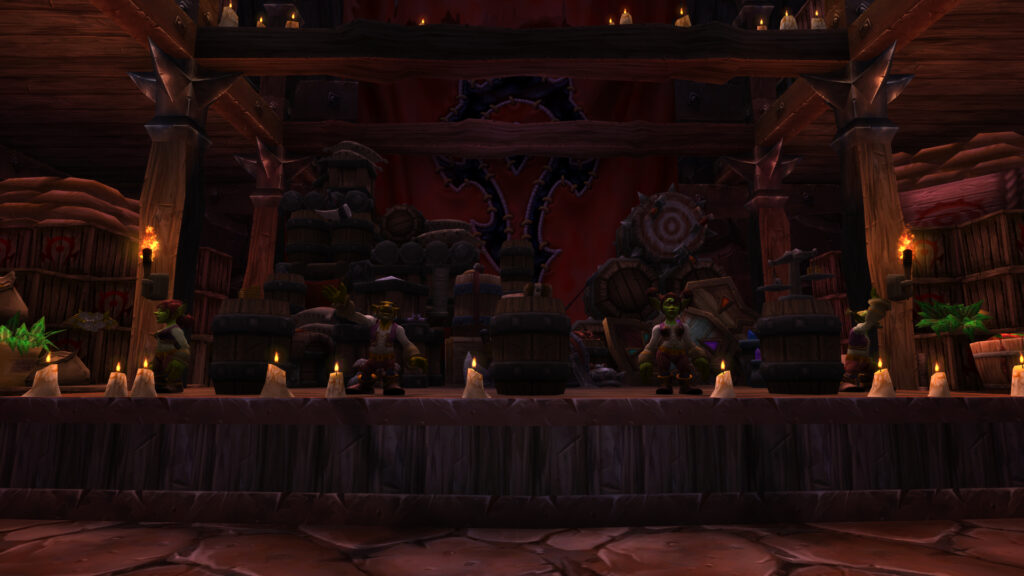- Author: Spannah
- Date: January 31, 2022
- Updated: January 31, 2022
- Expansion: World of Warcraft
Today, Blizzard announced that they are changing their policies around the sale of in-game services.
As the conditions change by which various entities operate in World of Warcraft, we are compelled to update our policies to further our goal of making the gameplay experience as fair and welcoming as possible. Since we last updated our policies, we have found that an increasing disturbance of the gameplay experience has been caused by organizations excessively advertising various non-traditional services in-game.
As of today, we will now prohibit organizations who offer boosting, matchmaking, escrow, or other non-traditional services, including those offered for gold. World of Warcraft accounts found to be in violation of this policy are subject to account actions. These actions can include warnings, account suspensions and, if necessary, permanent closure of the disruptive World of Warcraft account(s). Organizations operating across multiple realms and excessively advertising non-traditional in-game sales are contrary to the terms and conditions of the Blizzard End-User License Agreement (EULA).
This policy update does not restrict individuals or guilds from using the provided in-game tools (“trade channel” chat) to buy or sell in-game items or activities for in-game currency. However, “boosting communities”, especially those who operate across multiple realms, are no longer permitted.
We urge all such organizations to cease doing business in World of Warcraft immediately, in order to maintain uninterrupted access to the game.
While this change in policy mentions the sale of in-game services, it seems to be mostly targeting organizations instead of guilds or individuals. So despite this change, guilds should still be able to sell raid boosts, and nothing is stopping individuals from making their own boosting groups either. Boosting communities however, are no longer allowed.
As of the writing of this article, the in-game Trade chat has been uncharacteristically void of boosting ads. While the Trade chat used to be full of players selling items and making groups for in-game content, for quite some time now, the Trade chat has been filled with boosting adversiters that were paid by communities to spam their boosting offers.
January last year, Blizzard had already started to take measures against boosting advertisers. The accounts created for the sole purpose of advertising boosts were now getting banned, and while it was a welcome change, it was also not enough to deter the boosting communities from adapting and continuing to sell boosts.
For now it’s unclear whether these communities will survive or not, but some of the bigger ones are putting their operations on hold while they look for clarification as to what is allowed and what isn’t, in an effort to adapt to Blizzard’s new rules.
With the amounts of gold being exchanged every month, it’s unlikely that these boosting communities will just disappear overnight. They might try to find a workaround such as having a multitude of guilds spread accross several realms instead.
So while this is a good first step from Blizzard, these boosting communities are too big to just stop their operations from one bump on the road. While some communities have since been banned for RMT (Real Money Transactions), there are rumors about most of the boosting communities re-selling their gold for real money.
For some, boosting is an easy way to earn gold for consumables or in-game services such as race changes, for some people it may be their main source of income. So it’s safe to assume that these communities will most likely endure, and further actions from Blizzard will be needed in the future.
One thing to note, is that many players were purchasing these boosts by buying and selling WoW Tokens. Players can buy a token for 20$, which is currently worth 201k gold on US servers and 297k gold on EU servers. While you could buy a Sylvanas Heroic kill for 50k gold, some more expensive boosts would sell for more than a million gold, which could be worth more than 100$ in Tokens.
So not only did some players consider this to be pay to win, Blizzard also indirectly benefitted from these boosts, which may not have been an insignificant amount of revenue.
While it’s not clear what prompted Blizzard to suddenly change their policy around boosting communities, some speculate that Activision Blizzard being purchased by Microsoft might have something to do with it.
All in all, this is overall a good change for the health of the game, although it remains to be seen if this will be enough to put an end to boosting communities, and whether Blizzard will manage to enforce these new rules or not.


